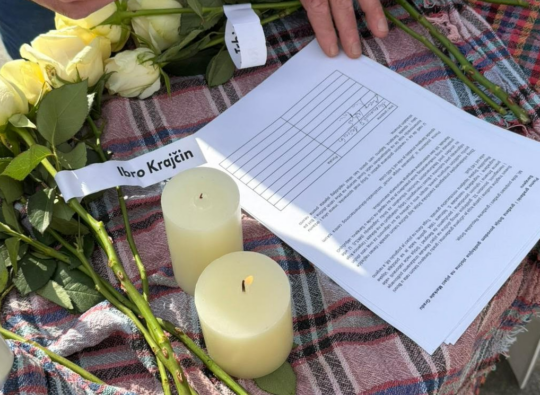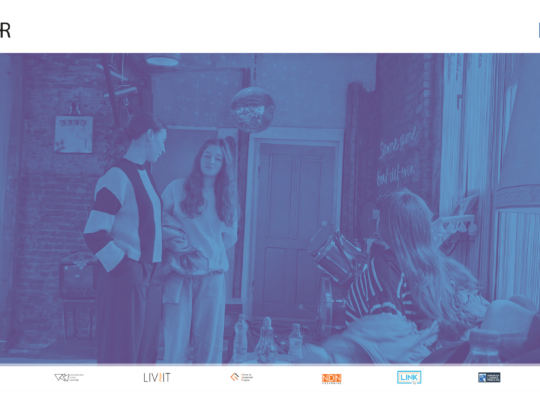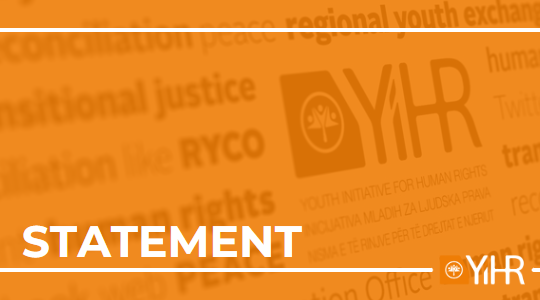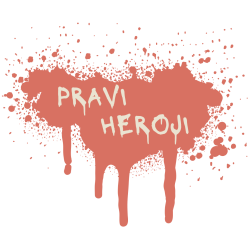Šejla Kamerić was born in Sarajevo, Bosnia and Herzegovina, in 1976. She is one of the most relevant artists of her generation in Europe. She has received widespread acclaim for social commentary and poignant intimacy that have become the main elements of her works delivered through various media, including photography, film, installations and drawings. Her artistic practice is recognisable by perceptive emotionality of her works, and the delicacy of their materials and forms. She places her focus on the politics of memory, modes of resistance in human life, and the consequential idiosyncrasies of women’s struggle and resistance. By insisting on empathy as the founding communicative mechanism between herself, her subjects and spectators, Kamerić warns of, and at the same time creates, places of power and political arenas.
‘My artistic approach is such that I always start from a deeply personal place, place that is really subjective and emotional for me; it also my need to make my personal experience universal, and when I spread it as much as possible to the whole world and to a global level, that is the moment when I say that I have reached that certain level of my work that makes me satisfied. What does my personal experience have to do with the experience of everybody else? I am particularly interested in the topic of women in the war context, this is what I want to completely rip out of myself and see what makes us universal’, said Šejla about her work.
Šejla Kamerić then stressed her feminist position in art and explained why it is important to her that women’s perspective in art becomes more visible and louder. ‘The position of a woman is certainly better than it has ever been, but it is still not good enough. Women will most often say that they don’t want to stress their position of the victim, and out of that resistance, they neglect the facts and deny collective experience, that is, the fact that the fight for equality should continue. Very often I hear from women that everything is ok, while, on the other hand, I also hear from men that everything is ok, but nothing is ok, and factual equality does not exist. Even where there is equal pay and equal civil rights, there is still no recognition of women’s labour with regard to housekeeping and caring for children; and even if this were ok, we could go back to the past and see the history of the position of women who were exploited in every possible way. This is where men and women have an equal position to win in this society’s struggle for real equality. We are all victims of the past, of what our grandmothers and grandfathers, the whole of humanity, built into us, by the moment of birth we have assumed an enormous burden which does not allow us to live freely.’
In the end, Šejla Kamerić mentioned the project ‘Forensic Archive’ she is currently working on and which is important for her, both because of the topic and its memorialisation character, and because of technology and multimedia approach used for its creation. ‘The Archive contains more than 900 hours of material which is randomly projected in a refrigerator truck, and it is from these random fragments that we read about the broad, complex picture of human lives that were irrevocably lost, and realise that we as spectators, as well as each of those fragments, are but a small point in a large network that connects us all. Such approach provides a possibility for versatile interpretations, so that people who start watching have very hard time not keeping the material their sole focal point. Everything I went through during the research, reading documents and in the field, and which is probably not the main focus of the work, but hangs around in a way, these very things are something the audience took the greatest notice of and connected to. For example, the number of socks found in these graves, or the rain pouring, or a rose… These are the things the audience understands best, because it is no longer something far or strange, but something happening to us, too, it is actually us.’
The conversation is part of the project ” Advocacy, Artivism and Education to End Genocide Denial and Strengthen Reconciliation Process” which is supported by the Ministry of Foreign Affairs of the Federal Republic of Germany. Germany supports efforts to establish a participatory culture of remembrance, regional cooperation, and reconciliation in the Western Balkans.












